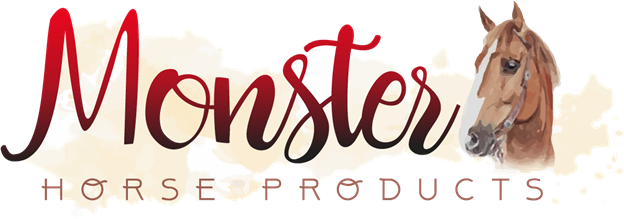Learn to Recognize Your Horse’s Dental Problems
Learn to spot the warning signs of dental issues in horses and how to prevent serious complications before they start.
A healthy mouth is essential for a horse’s overall well-being, yet dental problems are often overlooked until they cause serious issues. From difficulty chewing to behavioral changes, recognizing the early signs of equine dental issues can help prevent discomfort and long-term health concerns.
At Monster Horse Products, we believe that preventative care is key to keeping your horse healthy and happy. In this article, we’ll explore the most common dental problems in horses, the warning signs to look for, and what you can do to help.
Common Dental Problems in Horses
Horses rely on their teeth for grinding food efficiently, and any issue can lead to pain, weight loss, and even poor performance. Here are some of the most frequent dental conditions to watch for:
1. Sharp Enamel Points & Hooks
- Over time, uneven wear can cause sharp points on a horse’s teeth, leading to sores on the tongue and cheeks.
- Signs: Dropping feed, difficulty chewing, head tossing, or resisting the bit.
2. Retained Baby Teeth (Caps)
- Young horses (2-5 years old) shed their baby teeth, but sometimes caps don’t fall out properly, causing discomfort.
- Signs: Excessive chewing, slow eating, or reluctance to take the bit.
3. Wolf Teeth Issues
- Wolf teeth are small, vestigial teeth in front of the premolars that can cause pain and bitting issues if they don’t erupt properly.
- Signs: Head tossing, resistance to the bridle, and mouth sensitivity.
4. Uneven or Worn Teeth
- Poor tooth alignment can cause waves, steps, or ramps that make chewing inefficient.
- Signs: Weight loss, difficulty chewing, or food packing in the cheeks.
5. Infections & Tooth Abscesses
- An infected tooth can lead to pain, swelling, and even sinus infections.
- Signs: Bad breath, nasal discharge, swelling on the face, or reluctance to eat.
Signs That Your Horse May Have Dental Problems
Not sure if your horse needs a dental checkup? Look for these red flags:
✅ Difficulty Chewing – Dropping feed or excessive salivation
✅ Weight Loss – Not finishing meals or slow eating
✅ Head Tossing & Bit Resistance – Sensitivity while riding
✅ Bad Breath or Swelling – Possible infection or tooth decay
✅ Nasal Discharge – Often linked to sinus issues from an infected tooth
What You Can Do: Prevention & Treatment
1. Regular Dental Checkups
- Horses should have a dental exam at least once a year. Older horses or those with known dental issues may need biannual floating (filing down sharp edges).
2. Monitor Eating Habits
- Pay attention to changes in eating speed, droppings, and behavior at mealtime. Early intervention can prevent bigger problems down the road.
3. Proper Nutrition
- Providing soft, soaked hay or senior feeds can help older horses or those recovering from dental issues maintain proper weight.
4. Invest in Protective Gear
- Dental issues can sometimes cause head tossing or resistance under saddle, which could lead to secondary injuries or joint strain. Protecting your horse’s legs with Monster Horse Products’ hoof boots and joint wraps can prevent further discomfort while they heal.
Final Thoughts: Stay Ahead of Dental Problems
Your horse’s teeth play a crucial role in their overall health, comfort, and performance. By recognizing early signs of dental issues and scheduling regular checkups, you can prevent serious complications and keep your horse feeling their best.
At Monster Horse Products, we’re committed to providing innovative equine health solutions to ensure your horse stays happy, comfortable, and performing at their best.
📢 Looking for more horse care tips? Follow us for expert insights and top-tier protective gear for your horse!
